
FOCUS ON
NATHAN GENTRY
Nathan Gentry’s photos have caught my attention for several reasons.
Among those is surely his fresh way of visualizing a scene.
This is probably due to his way of understanding photography, which is reflected in this short interview.
I recommend everyone to read it, I think you can see a kind of manifesto of an interesting artist.
Q You have a varied range of photographic work. You like portraits, road landscapes, conceptual photos and found photos. What do you want to achieve with photography?
A That’s true. My interest in photography is less about a specific photographic genre, but more about things that catch me. I have always had this mindful rule that if there is something that causes me to question thereality of an instance or causes me to feel any level of exaggerated anger, sadness, happiness, confusion, comedic relief, etc, I would stop and take a photograph of it. I just thought that there was no reason to leave a photograph behind. That being said, I don’t think there’s anything that I truly picture, or expect to achieve through photography except that others get a chance to see how I visually see and understand the things before me. I guess I just want others to have the opportunity to see things, spaces, and interactions in a different light. I just want to share those moments.
Q Photography is not your only passion, you are also a skater. What do the two passions have in common?
A So much. Skateboarding is the reason why I found photography; it’s the reason why I have a career in the visual arts. I have held interviews regarding this in the past and the one thing I always go back to is that skateboarding itself is more of an art than it is anything else. It is more of an art than a physical interaction and more of an art than a sport. Skateboarding is so individualized that it allows the individual to be as creative as they want with their board. The thing that makes a skateboarder stand out is not always “how good they are.” Instead, a lot of the time, skateboarding is about the style and the unique way a skateboarder does the tricks they do. By relation, and through breakdown, that’s what makes “a good artist,” a good artist. Photography is just that as well. What makes a good photographer is not someone who takes great photographs. A great photographer is someone who sees things that others don’t and uses their camera in a way that makes them unique in their own right.
Q How much of yourself do you think is reflected in the photos you take?
A Oh man, that’s tough. I really don’t know, you know? I shoot photography as a way of communicating. I have a dual master’s degree in journalism and filmmaking, but if you were to have an in-person conversation with me, you would see that I struggle with my words. This is ironic because if you give me a pen or a camera, I will express every piece of me, every detail of my reality. I think that the world is hard for me to understand because it is simply moving too fast. Speaking out loud has been tough because I don’t have time to slow down, think about what I want to say, and express the things I really want to express. This is why the camera is a gift to me. It allows me to see things that pull me away from reality but also allows me to pause the moment. Ultimately, once I have developed my negatives, I can go back and see that the things I have photographed are visual representations of the way I would speak about a certain moment of peculiarity. And, with that paragraph being written, I think I can say most of me can be seen in my photographs, given that you know my personality and ways of thinking/understanding.
Q How often do you go out to photograph and what are the places you usually visit with your camera?
A I used to go out as much as I could, and I still do, but it used to be that I would demand that I take a camera with me everywhere I go. It was some weird thing where I was trying to push myself through a form of “writer’s block.” Eventually, I realized, mostly through education, that trying to push through creative blocks is when you create work that is most separate from who you really are, while also creating works that are not nearly as impactful as the work that you typically create. So, nowadays, I have a camera everywhere I go, but I don’t have it on my physical persons as often. I will make time for myself to go shoot when I am mindfully and physically free to experience the world I’m trying to experience in its truest form. So, that could be every day for a week, and then not again for a month. This all being said, I find myself shooting in the streets as much as possible, but my favorite places are always travel destinations. Ironically, the place I end up in is usually the place I shoot the least. My favorite places to shoot are on pull-offs, and on the way to destination trips. I think it’s great to go to Voyageurs National Park and shoot beautiful landscapes, but my favorite part of a trip like that is all of the interesting things I find along the way and outside the park.
Q If you had to name some photographers that you like and who have inspired you, who would they be?
A Oof, this is a tough one because I am a major nerd when it comes to historical photography and photographic education. That being said, this list will always change. It’ll always feature my favorite photographers, but based on my mood for the specific time, my favorite historical photographers are Robert Frank, William Eggleston, Diane Arbus, Saul Leiter, Walker Evans, Helen Levitt, and Alex Webb. That being said, I also have many friends who are putting out highly motivating work, and their work is typically what pushes me to venture out and create work of my own. These people are, Flip Twogood, Willem Verbeek, Mike Gray, Linda Wisdom, Garrin Evans, Al Brydon, Chris Dunn, and Paul Bundy.
Nathan Gentry BIO :
Nathan Gentry is a visual artist and writer who primarily works with the photographic medium and is interested in highlighting the relationship humans have with each other and their relationship with the world in which they live. Seeking to document the coexistence of humans upon the spaces they utilize and commune, and how we as humans use and abuse these spaces is a common focus in Nathan’s work. His work often requires experimentation and manipulation in order to create the communicative experience that is often personified in real life. In 2016, Nathan earned his Bachelor’s degree in Electronic Media with a minor in Photography at Texas State. After obtaining his undergraduate degree, Nathan moved to Pittsburgh where he earned a dual Masters Degree in Media Communications as well as Documentary Specialization. Upon completion of his Masters programs, Nathan moved to Salt Lake City, Utah. There, he continues to explore and develop new practices in which he can create photographic works through new processes. Nathan has presented his work in many parts of his home state of Texas but has also extended his presentation to several states within the US. In recent years, Nathan’s work has been seen traveling outside of the United States to countries all over the world. His most recent achievements have been his exhibition presentations through international selection in countries such as Germany, Belgium, Greece, the UK, and Italy. Nathan’s most recent project, A.D.D. (another.damn.distraction), as well as selected works from his ongoing collection titled, Our Planet, have been top selections in the recent travels of his work. Recently, Nathan developed a project called Fragments&Streaks, which is currently being exhibited in spaces throughout the US, but as that project moves about Nathan is planning to develop more work for future presentation.
If you like this content please support the author + Woofermagazine and share it :
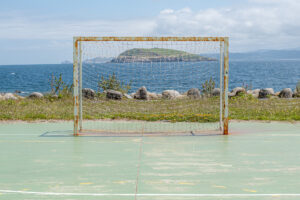
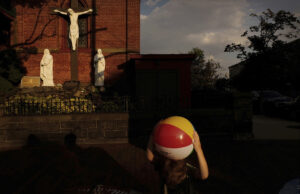
A FRAGILE UTOPIA
American photographer Brad Jones documents everyday life in New York
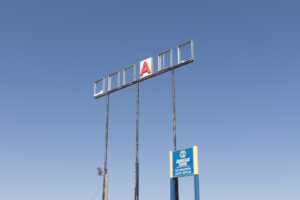
WAS THIS THE AMERICAN DREAM ?
What remains of the American dream in the photos of Rodrigo Paredes
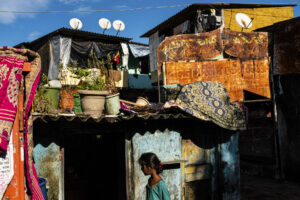
A WORLD CALLED MUMBAI
Suresh Naganathan takes us to discover his world,, a city called Mumbai.
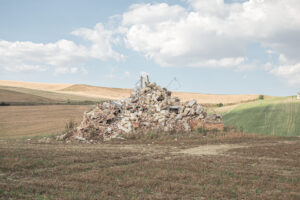
UTOPIA
Photographer Attilio Bixio tells us about the failed attempt in the middle of the last century to repopulate rural Italy.



